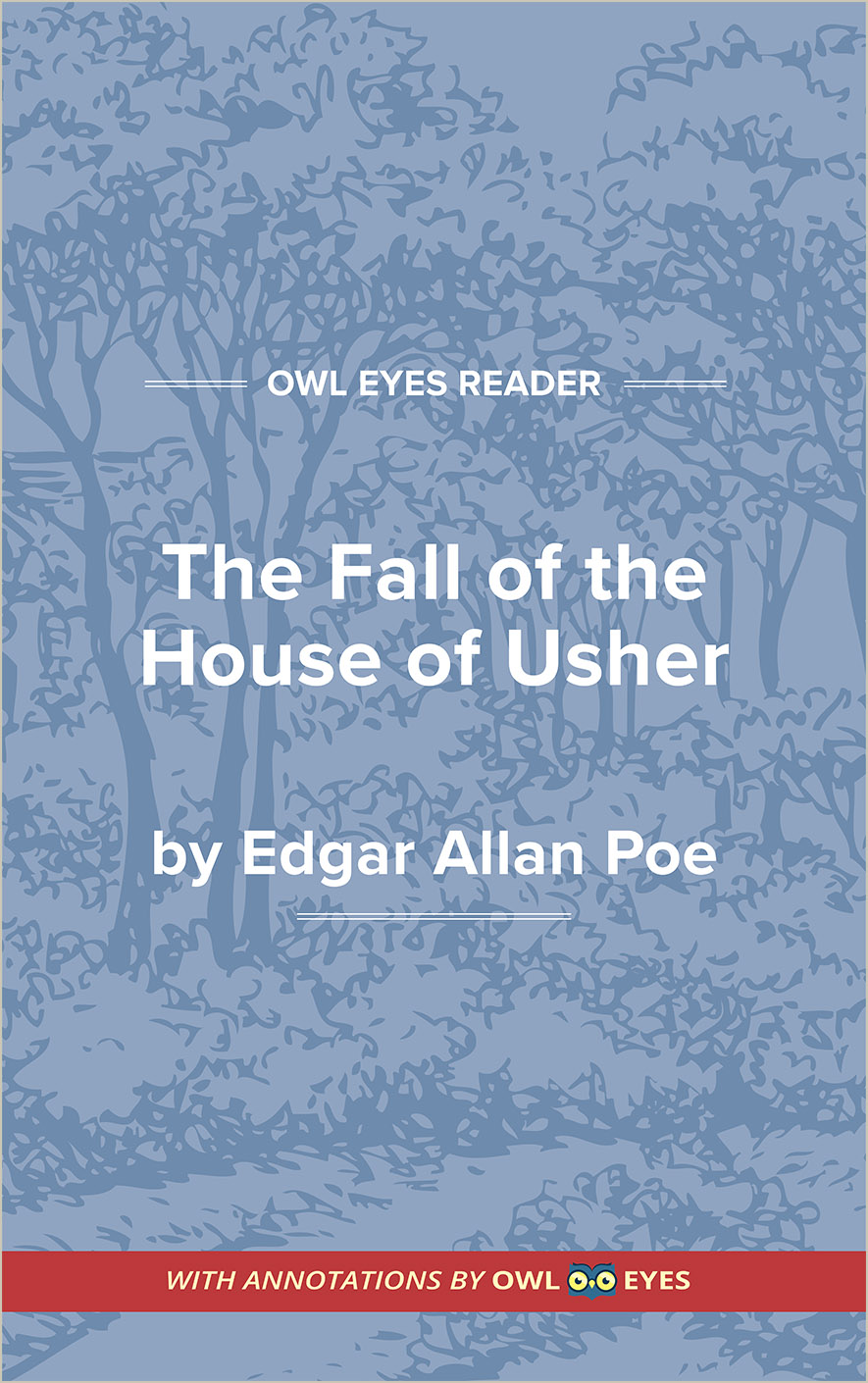Analysis Pages
Character Analysis in The Fall of the House of Usher
The Narrator: The story is told through the eyes of an unnamed narrator who knew Roderick Usher during childhood. When first exploring the area surrounding the House of Usher—and eventually inside the house itself—the narrator claims to experience strange, inexplicable sensations that only grow stronger and more unusual the more closely he examines his environment. As the narrator relates the events happening to Roderick and Madeline, his own sensory faculties are called into question, creating doubt in readers’ minds as to the veracity of his account.
Roderick Usher: The narrator’s account of Roderick Usher is that of a cultured, sensitive man skilled in music and educated in strange and occult topics. Roderick is also described as physically cadaverous and of poor health—possibly the result of the Usher family’s lack of diversity in their bloodlines. As the last of the Ushers, Roderick suffers from a nervous condition and shows a strong, almost supernatural connection with his twin, Madeline, and the physical House itself.
Madeline Usher: The twin sister of Roderick, Madeline suffers from similar maladies as Roderick that likely stem from their shared family history. The narrator claims that her physicians cannot diagnose her affliction, but it is clear that as Madeline’s physical health deteriorates, Roderick’s mental faculties follow suit. Madeline becomes an almost paranormal, ghostly figure from her disease. The strength of her connection to her twin brother manifests fully in the climax of the story.
Character Analysis Examples in The Fall of the House of Usher:
The Fall of the House of Usher
🔒"the breaking of the hermit's door, and the death-cry of the dragon, and the clangour of the shield!—say, rather, the rending of her coffin, and the grating of the iron hinges of her prison, and her struggles within the coppered archway of the vault!..." See in text (The Fall of the House of Usher)
"the hypochondriac..." See in text (The Fall of the House of Usher)
"It was no wonder that his condition terrified—that it infected me...." See in text (The Fall of the House of Usher)
"that sympathies of a scarcely intelligible nature had always existed between them..." See in text (The Fall of the House of Usher)
"I will not deny that when I called to mind the sinister countenance of the person whom I met upon the staircase..." See in text (The Fall of the House of Usher)
"Such opinions need no comment, and I will make none...." See in text (The Fall of the House of Usher)
"a full consciousness on the part of Usher, of the tottering of his lofty reason upon her throne...." See in text (The Fall of the House of Usher)
"the last waltz of Von Weber..." See in text (The Fall of the House of Usher)
"If ever mortal painted an idea, that mortal was Roderick Usher...." See in text (The Fall of the House of Usher)
"the more bitterly did I perceive the futility of all attempt at cheering a mind from which darkness..." See in text (The Fall of the House of Usher)
"Arabesque expression..." See in text (The Fall of the House of Usher)
"A cadaverousness of complexion; an eye large, liquid, and luminous beyond comparison; lips somewhat thin and very pallid, but of a surpassingly beautiful curve..." See in text (The Fall of the House of Usher)
"of the constrained effort of the ennuyé man of the world...." See in text (The Fall of the House of Usher)
"Shaking off from my spirit what must have been a dream..." See in text (The Fall of the House of Usher)

